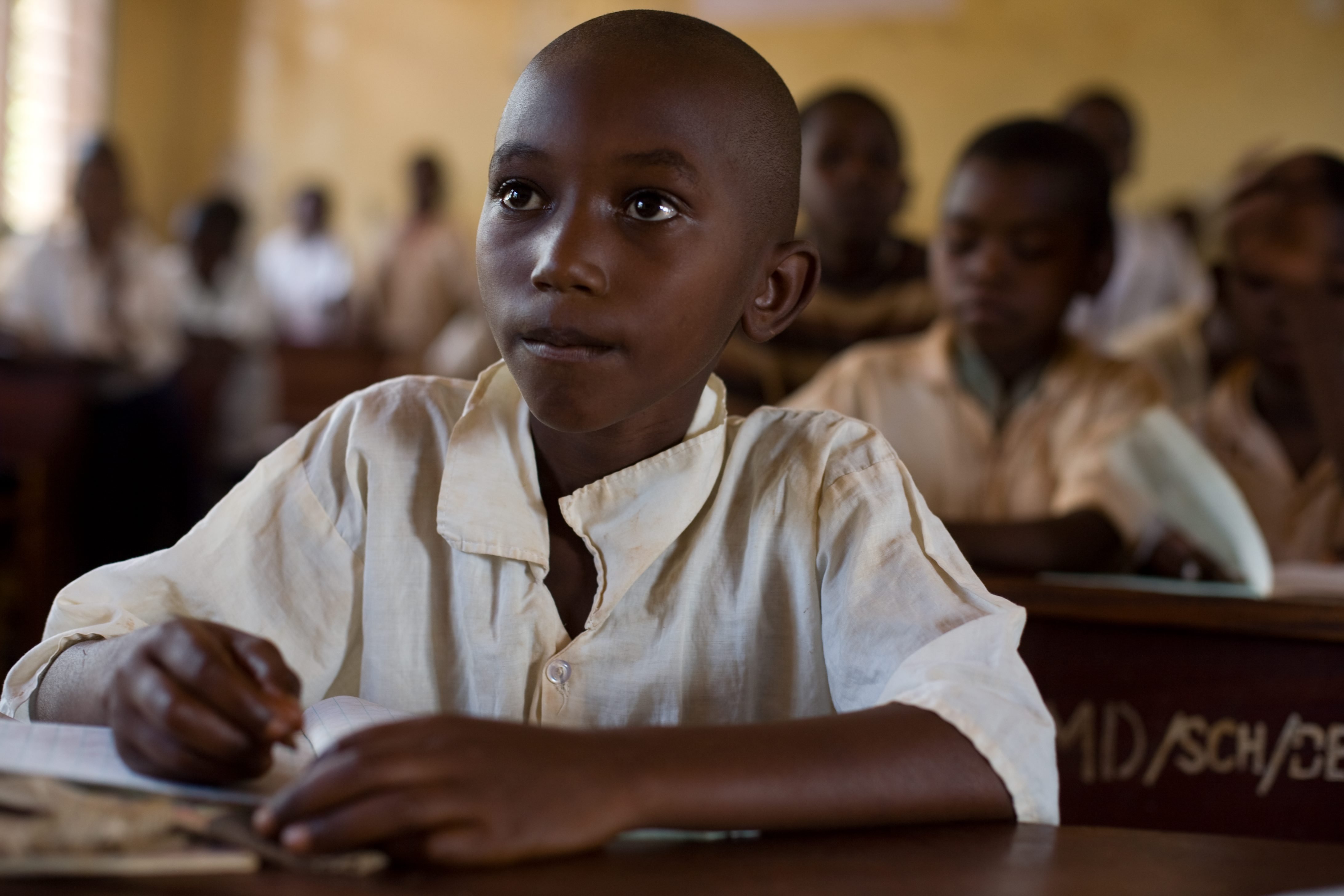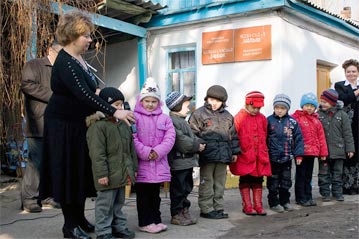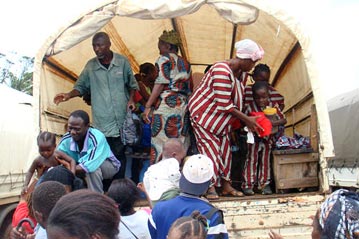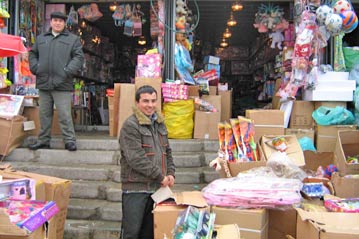Helping refugees flourish in Guinea
Helping refugees flourish in Guinea

CONAKRY, Guinea, May 24 (UNHCR) - Sory Cissé was a man in knead. A baker back in his native Côte d'Ivoire, he and his family had been forced to flee to neighbouring Guinea when rebels attacked his village more than two years ago. Life was hard in exile, until he rediscovered baking.
"I was picked out by the Guinean Red Cross during a survey done by UNHCR and its partners designed to give appropriate assistance to newly arrived refugees," says Cissé, 62. "After explaining my profession, they gave me two sacks of flour to start the business."
Today, the Ivorian refugee lives and works in Nonah transit centre in south-eastern Guinea's Nzérékoré region, near the border with Côte d'Ivoire. He built his own bread oven from basic materials like clay, and is now known as the camp baker.
"When I started this activity in the camp, I did not think it would generate income for my family," he says, admitting that it was hard in the beginning. "But thanks to the help we've received here, our lives are almost back to normal and we can now live in dignity."
Kneading the dough with one hand and shaping it with the other, he looks preoccupied but happy, surrounded and assisted by some of his 10 children.
"We feel nearly at home here, but like the other refugees, we still need assistance to live," says Cissé's wife, Djénaba.
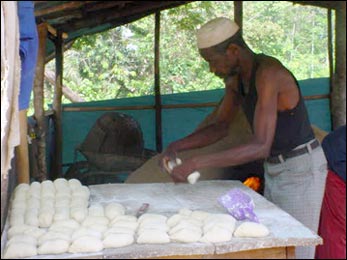
UNHCR and its parents are working to help refugees like the Cissé family to attain vocational skills and self-reliance through income-generating activities. This involves training in sewing, carpentry, bricklaying, hairdressing, computer and secretarial skills, as well as activities like soap-making, weaving, pastry-making and agriculture.
Not all of these initiatives are implemented at Nonah transit centre, which is considered a temporary site due to its proximity to the border. School infrastructure is lacking in some levels and until recently, the refugees were not allowed to farm despite the fact that the majority are farmers.
To improve the living conditions of the Ivorian refugees at the transit centre, UNHCR has been negotiating with the Guinean authorities to find an appropriate solution. As a result, the refugees are set to be transferred slightly north to Kola camp, home to Liberian refugees seeking to go home in the near future.
By Fatoumata Diariou Tounkara in Nonah transit centre, Guinea


